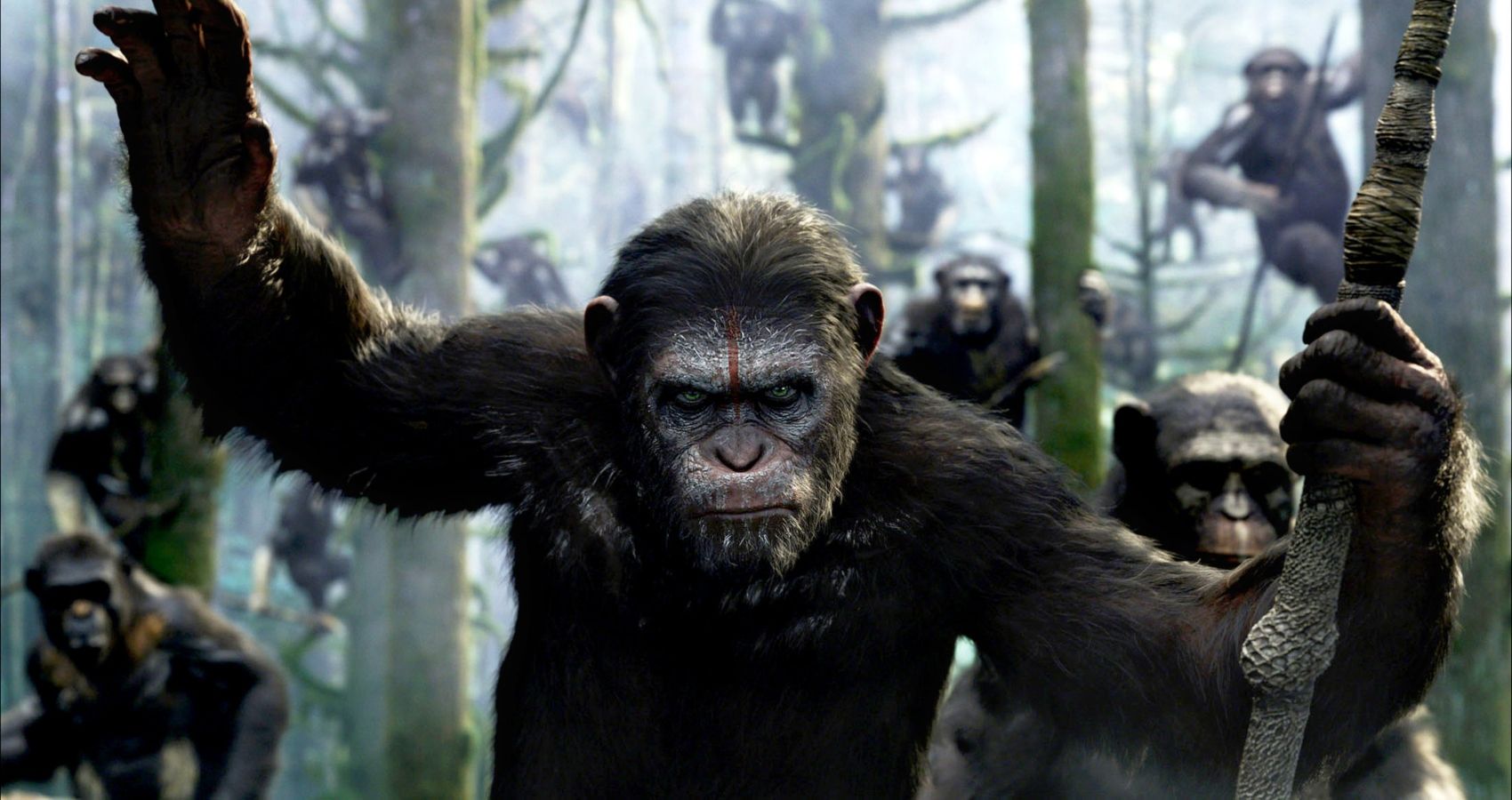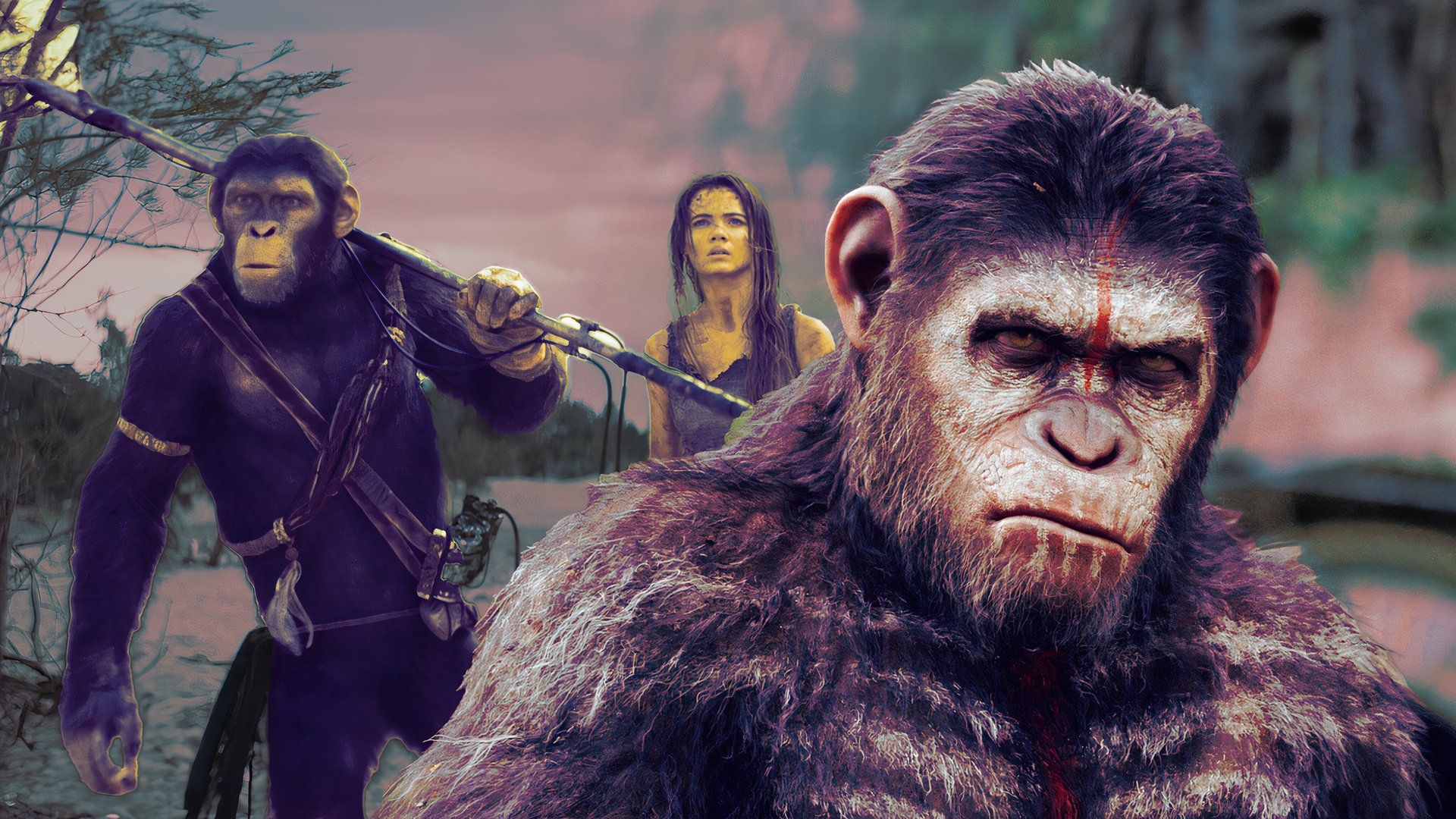Quick Links
Summary
- Kingdom of the Planet of the Apes is a delayed sequel to the Caesar trilogy, starting with Caesar's funeral.
- Proximus Caesar twists history, claiming to follow Caesar's teachings but using them for his selfish desires.
- The Order of Caesar, embodied by Raka, represents the true meaning of Caesar's words of unity and strength in the face of opposition.
This article contains minor spoilers for Kingdom of the Planet of the Apes.
The Planet of the Apes series was one of the defining film franchises of the ‘60s and ‘70s. With five feature films released in six years, the series clearly hit upon an idea that audiences found exhilarating. While not every movie in the series was a box office success, the franchise itself held tremendous power, which is exactly why studios have been so eager to keep it going over the years. Following the failed reboot that was Tim Burton’s Planet of the Apes in 2001, 20th Century Fox gave the franchise another shot with Rise of the Planet of the Apes just a decade later. With Dawn and War for the Planet of the Apes following over the next several years, this new trilogy started completely from scratch and centered around the intellectual evolution of the apes as it coincided with humanity’s downfall.
Now, as we approach the mid-2020s, it is Disney’s turn to take a swing at Planet of the Apes. Following the House of Mouse's acquisition of 20th Century Fox in the late 2010s, Disney was quick to announce a new film in the franchise under the newly renamed 20th Century Studios banner. This new film, Kingdom of the Planet of the Apes, is not a reboot though. Instead, it is a delayed sequel to the Caesar trilogy of films that preceded it. While the story features a substantial time jump, set about 300 years after the events of War, there is still a solid continuity between the films. Here’s how.
The Opening Funeral in Kingdom of the Planet of the Apes
While Kingdom of the Planet of the Apes may take place many generations after the events of War for the Planet of the Apes, it does not throw the audience straight into that new time period. Instead, the film opens with a direct continuation from the end of the last film. Following on-screen text that provides the necessary exposition for the story, similar to the beginning of War, the movie then begins by depicting Caesar's funeral.
Caesar's body is shown on a funeral pyre, with the entire tribe of apes he led surrounding him. Many of the apes who were central to the story of the Caesar trilogy, including Maurice and Rocket, are seen mourning the death of their great leader and friend. Caesar was directly responsible for freeing the apes from their captivity and building the new society in which they thrived. Because of this, he was a revered figure. His death only cemented his legacy, enshrining him as the founding father of the planet of the apes.

The Depiction of War and Humanity in Dawn of the Planet of the Apes
Planet of the Apes has a legendary history in Hollywood, and 2014's Dawn of the Planet of the Apes stands tall as one of the franchise's best.By making Caesar’s funeral the opening scene of Kingdom of the Planet of the Apes, director Wes Ball and screenwriter Josh Friedman quickly make the continuity between this film and the previous trilogy unmistakable and undeniable. They do this while also setting the stage for much of this new story’s thematic material, which will center on ideas such as legacy, power, and historical revisionism.
Proximus Caesar Twists History
After Kingdom makes its massive time jump in the following scene, the direct connections to Caesar do not end. The legacy of the character is at the core of this fourth film’s story. One of the most evident ways is through the film’s villain, the conqueror, Proximus Caesar, played by Kevin Durand. The society of apes in Kingdom of the Planet of the Apes is shown to be made up of a number of individual tribes who mostly operate on their own terms. Proximus is the leader of one of the most violent and warmongering tribes, as he seeks to bring more and more apes under his control as part of his kingdom.

Wes Ball Talks Kingdom of the Planet of the Apes' Time Jump and Its Social Themes
The director of Kingdom of the Planet of the Apes explains the movie's meaning, how it sets up the trilogy, and if there will ever be peace.Proximus claims to be living through the teachings of Caesar. He preaches the words and laws of Caesar’s original tribes, reciting the rules of “Ape not kill ape,” “Apes together strong,” and “Knowledge is power” as if they were commandments brought down from the mountain. However, he twists these rules to suit his own selfish desires. He even adopted the name Caesar in a further attempt to embody the power he wished to control. He is obsessed with knowledge and the pursuit of it, and so he conquers different tribes to force them into carrying out his own pursuits.
The Order of Caesar in Kingdom of the Planet of the Apes
Finally, the last major way that Kingdom of the Planet of the Apes connects with the Caesar trilogy is through the fading existence of The Order of Caesar. This group is embodied in the film primarily through Raka, a wise old orangutan (played by Peter Macon) who joins Noa on his journey to free his tribe from Proximus Caesar’s rule. The Order of Caesar is the inverse of Proximus, as they more closely embody the true meaning of Caesar’s words. They preach leading through empathy, compassion, and kindness, as well as deriving strength through the unified voices of a community. The Order of Caesar is diminishing, though, as fewer and fewer apes listen to their preaching and Proximus Caesar actively hunts them. By the time we meet Raka, he believes that he is the final member of their order.
Throughout the film, Raka teaches the true meaning of Caesar’s words to Noa, whose tribe never taught anything about the ape at the beginning of their history. The old orangutan even gifts our hero a necklace with the symbol of their order. Raka states that the origin of the symbol has been lost to history, but audiences will recognize it as the window in Caesar’s childhood home. It was a recurring symbol throughout the Caesar trilogy, often used as the mark of Caesar's tribe and a symbol of resistance and strength.
By listening to these lessons from Raka, Noa is able to grow into his own as a leader, showcasing many of the same traits as Caesar while also being his own character with his distinct nuances. By pitting Noa and Proximus against one another, Kingdom of the Planet of the Apes creates a battle for the soul of Caesar’s legacy. Kingdom of the Planet of the Apes is in theaters now.

